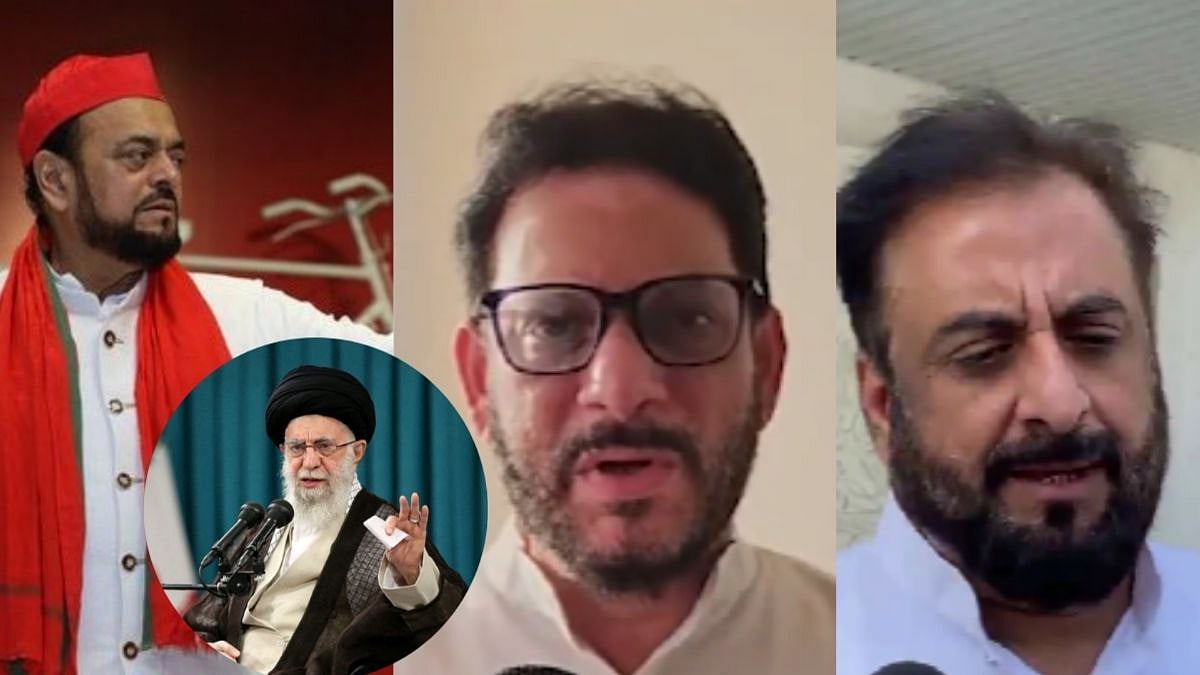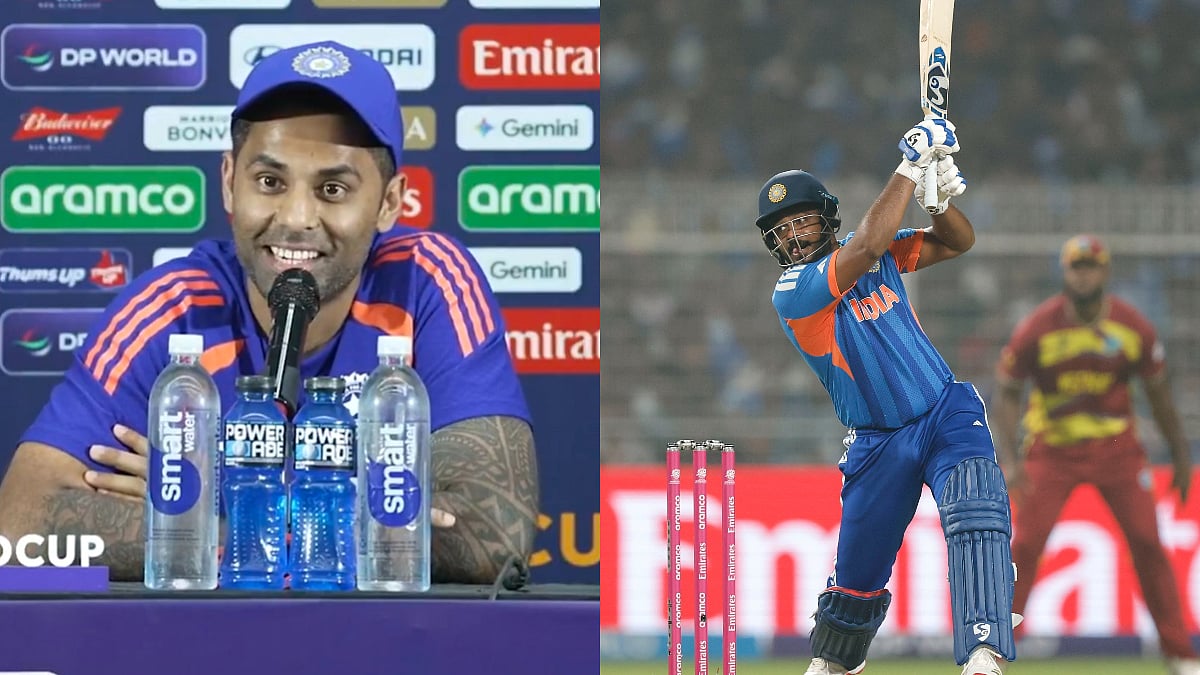The 50th Chief Justice of India, Dhananjaya Chandrachud, stated in open court that the central government’s affidavit filed to counter the PILs opposing the abrogation of Article 370 in Kashmir only stated peace and prosperity reigned in the valley after the regime bifurcated the state — without dealing with the legal issues raised — proves the judiciary can do little when the regime stonewalls the court. The then CJI NV Ramana had said the government was not cooperating with the court by disclosing details in the sensitive Pegasus-tapping allegations. A future CJI Justice Bhushan Gavai has stated in court that judges should rarely strike down laws made by the legislature unless there is no other way.
CJI Chandrachud has said the court cannot give orders to the Army or the police in strife-torn Manipur (where the BJP chief Minister Biren Singh from the majority Meitei community has been accused of complicity in the genocide). Unchecked genocide in Manipur is scheduled for discussion in the European Parliament but the government says it is an internal issue.
Evading legal issues raised in the Supreme Court is a serious matter given that only joint secretaries and above file affidavits in the top court. When the Harvard-educated and liberal CJI Chandrachud admits in open court that the government has a stake in appointing judges, this implies the Supreme Court will do little to curb muscle-flexing by the government which clears the files in record time of those judges who are found “suitable” such as chief justices Ujjal Buyan and SV Bhatti. Their files were cleared within one week after the collegium’s recommendation.
So, like the Pegasus scandal, the Supreme Court is unlikely to find any illegality in the striking down of Article 370 in Kashmir just as it is unlikely to uphold pleas against enacting a UCC after it is passed. But the Supreme Court’s reluctance to interfere with government (or legislative) policies must be seen against the fact that 1,777 MLAs in 31 state assemblies out of 4,001 — or 44% — have pending criminal cases.
Some of these were filed when the party to which the MLA belonged was in power so not all of them are politically motivated. There are 47 MLAs with murder cases, 181 with attempt to murder cases, 114 MLAs with crimes against women, 14 MLAs with rape cases. Ironically, the BJP has 479 MLAs with criminal cases and 337 with serious criminal cases followed by the Indian National Congress with 334 MLAS having criminal cases and 194 with serious criminal cases against them. Hence, if the Supreme Court persists in a hands-off approach to populist government policy-making to appease vote banks, democracy turns into mobocracy as in Manipur. Scrapping scholarships for minorities and opposing caste-based reservations for Muslims and Christians are other examples.

Home Minister Amit Shah has assured delegations from the Northeast that the UCC will not apply to these tribes and to Christians, which will not make the code uniform. Every religion has been split by schisms which have their own personal law and customs. The Ashraf Muslims who are descendants of the invaders as opposed to the Ajlafs who are descendants of the low-caste local converts and the Arzals (extremely backward Muslim converts) have diverse personal laws. The word “Pasmananda Muslims” is applied to Ajlafs and Arzals who rarely marry Ajlafs whose personal customs are different. The UCC cannot homogenise diverse customs within Islam, never mind Hinduism.
Pope Francis created history by elevating Telugu Archbishop Anthony Poola as the first-ever Dalit Cardinal in the history of the 2000-year-old Roman Catholic church. Bamonn (Brahmin) Catholics in Goa do not intermarry shudras which is doing injustice to Muslims and Christians when the courts refuse to strike down government resolutions denying minorities reservations.
The opposition to the UCC by the All India Muslim Personal Law Board and other groups is based on the fear that some obscurantist ideas of the Manusmriti and other Hindu texts may be imported into the UCC which will find it difficult to reconcile a marriage treated as a contract in Islam but as a sacrament in Hinduism and the Abrahamic religions. Canon law derived from Jesus Christ’s teachings does not recognise divorce. But criminalising instant triple talaq is an achievement of the Narendra Modi government.

Will the UCC enacted by the government override this code of canon law and the Shari’a which will flout the minorities’ rights to practice their own religion — forget about propagating it? These are contentious issues. For it to be relevant to all, the UCC will have to encapsulate the guarantee of Article 25 which ensures the right of all citizens to profess, practice and propagate the religion of their choice. The various anti-conversion laws enacted by different states will have to be repealed because a provision against forced or fraudulent conversion will find a place in such a UCC.
There are over 80 dialects spoken by 645 tribal groups out of 398 dialects spoken throughout India. Some of these tribes recognise ‘temporary marriages’ while others have no defined marriage ceremony apart from exchanging flowers. The UCC will have to take in its fold diverse customs such as the matrilineal family law in Kerala. Imposing the UCC on them obliterates ancient beliefs of diverse ethnic minorities, as in Manipur. This flouts the Constitution — but the Supreme Court will not interfere.
The UCC, if and when it is enacted, will be a product of Article 44 of the Constitution. How it will reconcile conflicting values of religious laws enshrined in texts such as the Manusmriti, the shrutis, and the Vedas with modern concepts of liberty and equality enshrined in the Constitution remains to be seen. For this UCC, to be successful, will have to override and extinguish all the obscurantist beliefs held by orthodox priests of all religions.
Olav Albuquerque holds a PhD in law and is a senior journalist and advocate at the Bombay High Court





